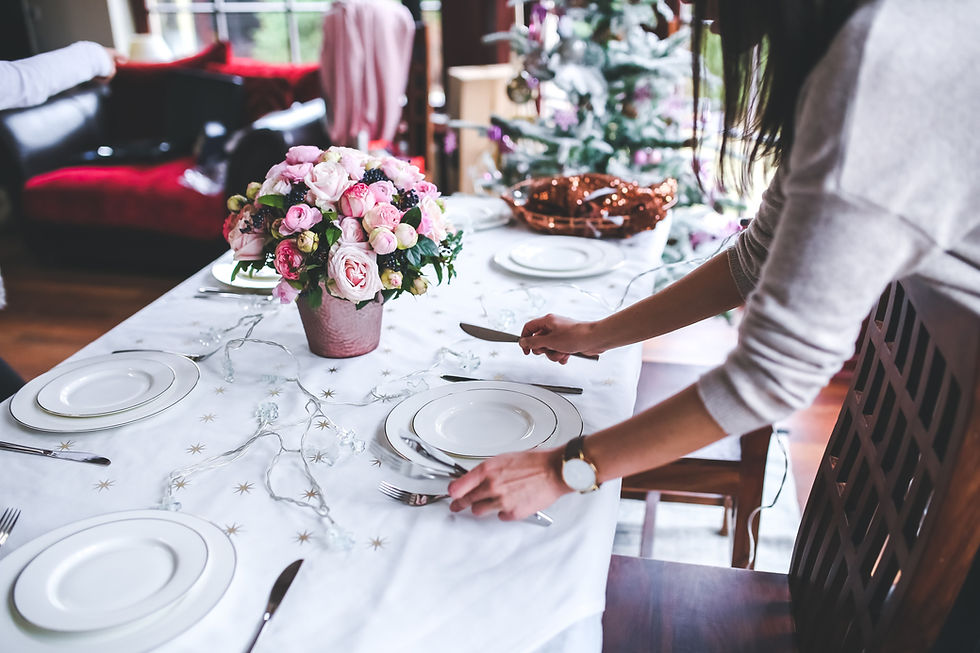
As I sat down this morning to write this blog (normally I write it in shorthand before transcribing it to the computer) I noticed how much my handwriting has changed over the past couple of years. The girl who prided herself in neat penmanship — straight A’s all the way — is no longer worrying about making it look perfect. Lots of words are hard to read, lots of scratches and mistakes, and sometimes words get mixed up. And on rare occasions I even scrap the whole piece all together, which for a perfectionist is a huge move.
In a book I’m currently reading, one of the secondary characters refers to perfectionism as the need to control the external environment because the inner one is so messy. And that was me 100%. Looking good on the outside because the inside was in complete turmoil.
My inner world was a disaster and I was constantly out of alignment. I didn’t know what I valued, what mattered, and I had a hard time speaking my opinions because I didn't know what they were. It was easier to go with the flow agreeing with everyone. No conflict or confrontation — keep the peace.
Any yet, this led to me feeling and being taken advantage of, misused, manipulated, and internally there was so much bitterness, anger, resentment, and despair. I had to stuff it all down daily. I was abandoning myself to get external praise and validation.
One of the few ways I could find some semblance of peace was to control my external world. I hosted parties, stepped in to help others with their messes, keep my house neat and tidy, and OMG was I organized! I had to show the world that I was okay and nothing would knock me down — be strong like bull. The energy and effort that went into maintaining this image was exhausting and unfulfilling.
I remember one dinner party I attended. After everyone had finished eating, I wanted to help the host; so I started gathering all the dirty dishes and getting them ready for the dishwasher.
The host came into the kitchen with another guest and said, “See what I mean, over hostessing!” That comment went straight to my core. I thought I was being helpful and shouldering some of the cleanup for the host, but that’s not how I was being perceived — “over hostessing” — the shame that filled me was enormous. I felt dirty, bad, wrong, and my image of being helpful and attentive was now tarnished. “Bad girl!”
If I go back to that moment and think about what was going on for me that night and be honest, there was a deeper story — a messy one.
The other guests and the hosts intimidated me. They were older and had great careers. They were well established and intelligent. I felt small and ridiculous around them. I was just a stay-at-home mom homeschooling my kids and that felt stupid and lack lustre. My insides were a mess, and so, my default was to clean and appear helpful — external validation to make my insides feel better — a balm, if you will.
Honestly it was my way to escape my insecurities and fears. Controlling my external environment at least gave me a sense of ‘pride’ — a false of pride because what I was really doing was trying to get some sort of validation and acknowledgment — to feel valued and seen.
The “over hostessing” stung so bad because I was being called out. The snideness in her voice. The jab felt. I was showing them up. She outed me and I was caught in a situation I created. This was my go to and I wanted to show them my worth and my helpfulness. I wanted them to think and say, “Isn’t she amazing! She cleaned my whole kitchen. What an amazing guest! So selfless.”
I was caught and my ego and pride were scorched. I remember folding in on myself. I didn’t want to stay there any longer, but we still had dessert. Dang! And so I did what a good girl does — she pretends it didn’t hurt, she didn’t hear, and everything was hunky dory. Fake it till you make it.
I’ve been working on rebuilding that part of myself — the messy part, and it’s been hard work. I’ve had four decades of crap to deal with.
It took me a while to find compassion and forgiveness for the one in me who was doing her best. She really was. This was all she knew, and good or bad, she showed up ready to tackle every new day. I’m proud of her for how she managed to be strong, supportive, loving, and attentive to those around her, even if it came at the cost of her own wellbeing.
Now, when I’m feeling insecure in a social setting I take notice. I ask myself, “Maria, what’s happening right now? What are you afraid of? What do you need? Maria, you are safe.” These intentional questions help bring me back to the present, to see what triggered me, and to amend the discomfort and messiness on the inside; so as to help myself feel safe and attended to.
No more abandoning myself to win favour or validation. And dang it, no more over hostessing.
Comments